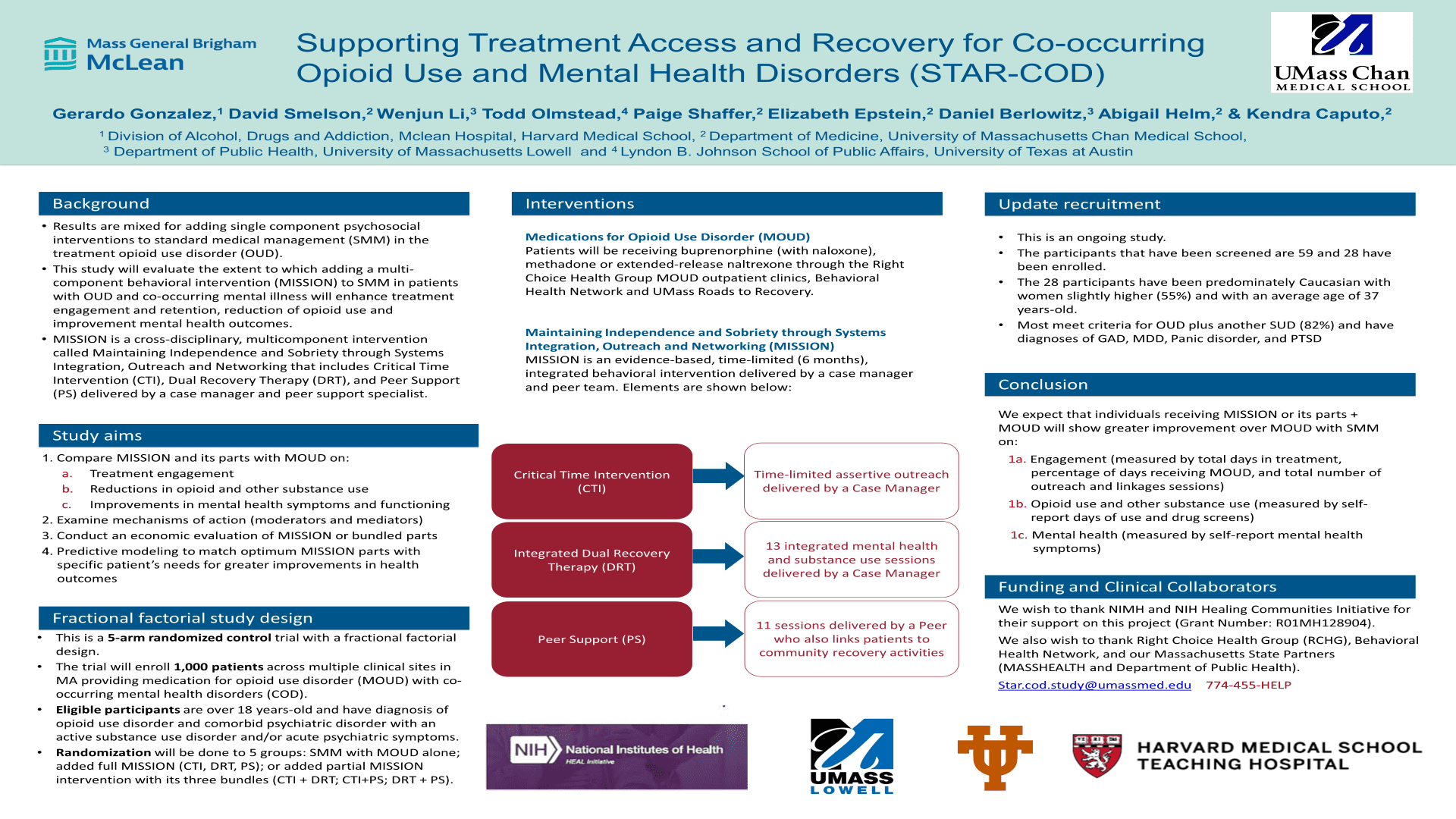Scientific Abstract
Background: Results are mixed for adding single component psychosocial interventions to standard medical management (SMM) in the treatment opioid use disorder (OUD). This study will evaluate the extent to which adding a multi-component behavioral intervention (MISSION) to SMM in patients with OUD and co-occurring mental illness will enhance treatment engagement and retention, reduction of opioid use and improvement mental health outcomes. MISSION is a cross-disciplinary, multicomponent intervention called Maintaining Independence and Sobriety through Systems Integration, Outreach and Networking that includes Critical Time Intervention (CTI), Dual Recovery Therapy (DRT), and Peer Support (PS) delivered by a case manager and peer support specialist.
Methods: This is a 5-arm randomized control trial with a fractional factorial design. The trial will enroll 1,000 patients across multiple clinical sites providing medication for opioid use disorder (MOUD) with co-occurring mental health disorders (COD). Eligible participants are over 18 years-old and have diagnosis of opioid use disorder and comorbid psychiatric disorder with an active substance use disorder and/or acute psychiatric symptoms. Randomization will be done to 5 groups: SMM with MOUD alone; added full MISSION (CTI, DRT, PS); or added partial MISSION intervention with its three bundles (CTI + DRT; CTI+PS; DRT + PS).
Results: This is an ongoing study. The participants that have been screened are 59 and 28 have been enrolled. The 28 participants have been predominately Caucasian with women slightly higher (55%) and with an average age of 37 years-old. Most meet criteria for OUD plus another SUD (82%) and have diagnosis of GAD, MDD, Panic disorder and PTSD.
Conclusions: We expect that individuals receiving MISSION or its parts + MOUD will show greater improvement over MOUD alone on: 1a. Engagement (measured by total days in treatment, percentage of days receiving MOUD, and total number of outreach and linkages sessions); 1b. Opioid use and other substance use (measured by self-report days of use and drug screens); and 1c. Mental health (measured by self-report mental health symptoms).
Funded by NIH HEAL initiative.
Search posters

